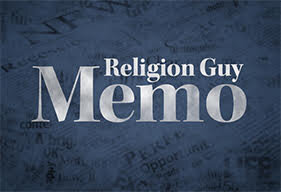
As with most human activities, there are significant religion angles on the Black Lives Matter phenomenon, but they’re often missed in the lavish media attention.
As a generalized cry for racial justice and action against police misconduct, the cause enjoys wide support, so one obvious aspect to cover is the extent to which church folk — Black and White — are providing support.
Pew Research says 55% of Americans sympathize with the movement as of Sept. 13, though that’s down from an impressive 67% in June, presumably because criminal mayhem and radical hostility toward policing in general mingled with the street protests. (Among Whites, support fell from 60% to 45%.) Remember the early efforts, often led by church leaders, to have police and protesters pray together?

Little press attention has focused on another religious problem. Pundit Andrew Sullivan branded the Black Lives Matter organization “explicitly atheist (and neo-Marxist).” Televangelist Pat Robertson denounced its “anti-God agenda.” A Catholic priest in Michigan, the Rev. Paul Graney, called it “anti-Christian,” “anti-family” and downright “evil.” Southern Evangelical Seminary declared that, of course, “black lives matter” (lower-case) because “all human lives are sacred,” but beliefs of the official Black Lives Matter organization and related “critical race theory” conflict with “foundational tenets of the Christian faith”
The media may have downplayed this controversy. At some point, during recent weeks, the BLM organization removed the “What We Believe” platform from its website. It it, the group complained about “patriarchal” practices and said “we disrupt the Western-prescribed nuclear family structure requirement by supporting each other as extended families and ‘villages’ that collectively care for one another.”
There’s also a big problem for religious believers who dissent from the LGBTQ cause. The BLM platform decried discrimination on the basis of “actual or perceived sexual identity, gender identity, gender expression” and vowed “to dismantle cisgender privilege.” It said “we foster a queer-affirming network” to break away from “the tight grip of heteronormative thinking.”
A related angle journalists could pursue is the way in which some leaders, including executive director and co-founder Patrisse Cullors, foster a new blend of non-Christian faiths and compete with the nation’s historic Black Protestant churches. A BLM-friendly September article for theconversation.com by two experts, Hebah Farrag of the University of Southern California and Arin Gleig of the University of Central Florida, explores this.
There’s richer detail in a paywalled academic article by Farrag (.pdf here), which depicts BLM as anything but “secular.” She reports that BLM and its Los Angeles predecessor Dignity and Power Now “have begun to reinterpret African spiritual practices and beliefs, embracing ancestor worship, Ifa-based ritual [from that West African religion] such as chanting, dancing and summoning deities, along with such healing practices such as acupuncture, reiki, therapeutic massage and plant medicine.” Drawing on the Quaker tradition, BLM chapters and affiliates interpret “crime as a community problem to be solved through understanding.”
The organization embraces “female and queer leadership” and those who’ve been “marginalized by traditional faith groups” which are “largely heteronormative and almost exclusively male.” Understandably, then, many mainstream black religious leaders, both Christian and Muslim, have criticized Black Lives Matter, though others urge acceptance. Local BLM meetings are often purposefully scheduled for Sunday mornings and “become church.”
This creation of “a new spiritual community,” she says, “has been largely overlooked” in depictions of the movement. It’s another example of the way the “mainstream” news media neglect important religious debates within the Black community.
Contact for Black Lives Matter headquarters: press@blacklivesmatter.com.
FIRST IMAGE: Drawn from Facebook for media reports.










